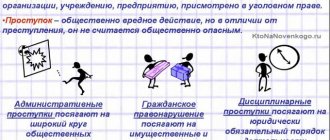Article 190 of the Criminal Code of the Russian Federation refers to those provisions of the law that are used infrequently.
It reflects the essence of the crime and the penalties for crimes related to the cultural values of the country exported outside its borders for the purpose of further sale or profit. Due to this characteristic, this article is included in the section of economic crimes. Multi-channel free hotline Legal advice on criminal law. Every day from 9.00 to 21.00
Moscow and region: +7 (495) 662-44-36
St. Petersburg: +7 (812) 449-43-40
Crimes in the field of art and national property
An analysis of existing judicial practice shows that such criminal acts are committed by people involved in the work of museums, private collectors, art historians and other persons whose professional activities are related to the cultural heritage of the country.
Objects of painting, art, artifacts, historical documents, rare books, icons and everything that constitutes historical and cultural value for the state often become objects of criminal acts.
These include:
- paintings, engravings, icons;
- books and historical documents;
- Houseware;
- precious jewelry of historical value;
- archaeological finds.
In most cases, valuable items are exported outside the country for the purpose of their subsequent sale to collectors. After the circumstances of the illegal sale have been clarified, the persons who have committed or committed such illegal actions are held responsible for their return to the country.
Failure to comply with such instructions is an offense falling under Art. 190 of the Criminal Code of the Russian Federation, which defines crimes related to the failure to return exported objects of art and culture to the state.
In a number of situations, the export of art objects outside the country does not initially have a criminal nature, for example, for the purpose of demonstration or research, but the return of the exported artifacts was not made in a timely manner or they were not returned at all - in such situations, there is also a failure to return cultural property to the territory of the Russian Federation.
What are cultural values - examples
They are understood as tangible and intangible objects and works of culture that were created by man as a result of the creative process. They have artistic and property value, have an aesthetic impact on humans, and are important for archaeology, history, literature, art, and science.
This concept was introduced in 1954 by the Hague Convention for the Protection of Cultural Property. In the legal science of each state, it is interpreted differently, but in general it coincides with the above.
Cultural values include ancient icons, paintings, sculptures and other objects that are of interest from an aesthetic and historical point of view. They belong to the category of cultural heritage of each individual country, that is, to what is passed on from generation to generation to descendants.
Laws and obligations for the export and return of cultural property to the territory of the Russian Federation
This procedure is regulated by the following legal acts:
- Law of the Russian Federation No. 4804-1 of April 15, 1993 (contains rules for the import or export of such valuable objects);
- Order of Rossvyazohrankultura No. 117 dated March 14, 2008 (it lists those cultural values for which a special certificate is required for export from the territory of the Russian Federation);
- Decree of the President of the Russian Federation No. 155 of 02/08/2011 (interprets some issues regarding cultural property in the Russian Federation);
- Decree of the Government of the Russian Federation No. 590 of July 20, 2011 (regulates the work of the Ministry of Culture of the Russian Federation);
- Article 3 of the Law of the Russian Federation of October 09, 1992 (contains the fundamentals of Russian legislation on culture);
- Decree of the Government of the Russian Federation No. 322 of April 27, 2001 (establishes the process of examination and control over the export of such items).
This is not a complete list of all regulations. There are also legislative acts approved by the constituent entities of the Russian Federation and local governments.
Subject and corpus delicti
As noted above, the export of items that constitute the national heritage of the country is not always of a criminal nature, but the subsequent actions of the responsible persons, namely the untimely return of the exported items, becomes the basis for classifying their actions as criminal.
The object of criminal acts are objects of art, archaeological finds and artifacts that have historical and artistic value for the country.
These include those that are present in private collections, as well as those located in museums, their storage facilities and other institutions equivalent to them.
The announcement of recent examples of such criminal events shows that officials and employees of such organizations and institutions are being held criminally liable. This moment is provided for by the very norm of the law, which defines the subject of the crime as a special one, that is, only an official can become one.
The comments to the article provide an explanation that actions to export abroad objects of its cultural heritage can only be carried out by the proper person or by another person authorized by a special act. It is the document granting the right to export that indicates the period for the return of the exported artifact to the country - the date, month and year of return.
A forensic analysis of a criminal act is based precisely on the following document:
- Thus, the subject is obliged to return the objects of cultural property entrusted to him within the period or period indicated by this act.
- If the latter deliberately does not take actions to comply with this instruction, they are considered to have criminal intent and grounds for qualifying his actions under Article 190 of the criminal law.
Based on this moment, the composition of a criminal action, or, more precisely, inaction, is formed. Thus, regardless of the reasons why objects of cultural property were exported abroad, the lack of action to return them can be qualified as criminal inaction, unless it is caused by force majeure or a set of valid reasons or factors beyond the control of the subject.
The criminal act is considered completed from the moment when the return deadlines were violated.
Thus, there is no need to talk about the possible incompleteness of the criminal act in such situations.
Considering the cycle of judicial practices that apply the above-mentioned norm, we can note the minimum of characteristics used when qualifying a crime. At the same time, the actions of the subject can be considered as the deliberate theft of things that constitute national property.
Commentary on Article 190 of the Criminal Code of the Russian Federation
Commentary edited by Rarog A.I.
1. The crime violates relations in the sphere of foreign economic activity of the Russian Federation.
2. The subject of the crime is objects of artistic, historical and archaeological property of the peoples of the Russian Federation and foreign countries. The Regulation “On Particularly Valuable Objects of the Cultural Heritage of the Peoples of the Russian Federation”, approved by Decree of the President of the Russian Federation of November 30, 1992 N 1487, classifies as such objects objects that represent material, intellectual and artistic values of a reference or unique nature from the point of view of history and archeology , culture, architecture, science and art, in any form of ownership.
Objects of the artistic heritage of the peoples of the Russian Federation and foreign countries are handmade paintings and drawings, icons, engravings, lithographs, works of decorative and applied art (glass, ceramics, wood, metal), monuments or their fragments, ancient books and manuscripts, postage stamps , ancient coins and other movable objects of the material world. Items of historical heritage are historical values associated with the development of society and the state, the history of science and technology, as well as those related to the life and work of outstanding personalities. The law considers objects and fragments obtained as a result of excavations to be objects of archaeological heritage (Articles 6 and 7 of the Law of the Russian Federation of April 15, 1993 N 4804-1 “On the export and import of cultural property”).
In the Russian Federation, the Unified State Register of Cultural Heritage is maintained as a unified information system, which includes a data bank. Each object is assigned a number, the category of historical and cultural heritage is determined, and the owner is issued a passport (Articles 15, 20, 21 of this Law).
Some particularly valuable sites are included in the World Heritage List established in accordance with the Convention Concerning the Protection of the World Cultural and Natural Heritage by the World Heritage Committee of the United Nations Educational, Scientific and Cultural Organization (UNESCO).
3. The crime is characterized by inaction - failure to return within the prescribed period the specified items, the export of which is prohibited. The export of such items is allowed only for a period of time, and the law establishes the procedure for their mandatory return. Temporary export is possible with the consent of the Ministry of Culture of the Russian Federation, the State Archive Service of Russia, the Federal Service for Supervision in the Sphere of Mass Communications, Communications and the Protection of Cultural Heritage, the Federal Customs Service and other executive authorities to the territory of a foreign state for the purpose of holding exhibitions, restoration or scientific- research works.
Failure to return these items means legally exporting and leaving these items on the territory of a foreign state after the end of the period stipulated by the contract, in the absence of objective circumstances preventing their return (military actions, natural disasters and other reasons). The crime is considered completed after the expiration of the period obligatory for the return of exported valuables, if there are real conditions for their return.
4. The crime is committed with direct intent.
5. The subject of the crime can be any private person or head of an organization responsible for the return of these valuables.
Question about responsibility
The law itself provides for three punishment options:
- 5 years of correctional labor;
- up to 8 years in prison;
- a fine of up to 1 million rubles.
Depending on the amount of damage caused and the identity of the offender, as well as the absence or presence of aggravating factors, the judge has the right to assign them separately, as well as in the aggregate.
In addition, if the fact of theft is proven, then penalties under this article will be applied.
Judicial practice: sentences and punishment under Art. 190 of the Criminal Code of the Russian Federation
- Decision of the Supreme Court: Determination N 203-APU17-21... THE SUPREME COURT OF THE RUSSIAN FEDERATION Case No. 203-APU17-21 APPEAL DECISION Moscow August 31, 2021 Judicial Collegium for Military Personnel of the Supreme...
- Decision of the Supreme Court: Resolution No. 310P13 dated... DECISION OF THE PRESIDIUM OF THE SUPREME COURT OF THE RUSSIAN FEDERATION Case No. 310-P13 Moscow January 23, 2014 Presidium of the Supreme Court of the Russian Federation...
- Resolution of the Plenum of the Supreme Court of the Russian Federation dated... PLENARY OF THE SUPREME COURT OF THE RUSSIAN FEDERATION DECISION dated December 27, 2002 N 29 ON JUDICIAL PRACTICE IN CASES OF THEFT,...
- Ruling of the ECtHR dated 02/14/2017 EUROPEAN COURT OF HUMAN RIGHTS THIRD SECTION CASE “MASLOVA VS. RUSSIAN FEDERATION” (Complaint No. 15980/12) JUDGMENT…
- Ruling of the Constitutional Court of the Russian Federation dated March 13, 2018 N 578-O THE CONSTITUTIONAL COURT OF THE RUSSIAN FEDERATION RULING dated March 13, 2018 N 578-O ON THE REFUSAL TO ACCEPT A CITIZEN’S COMPLAINT FOR CONSIDERATION...
- Resolution of the Presidium of the Supreme Court of the Russian Federation dated... PRESIDIUM OF THE SUPREME COURT OF THE RUSSIAN FEDERATION DECISION dated December 5, 2018 N 126-P18 ON RESUMING PROCEEDINGS IN THE CASE DUE TO NEW...
- Decision of the Supreme Court: Determination No. 56-КГ16-46 dated... THE SUPREME COURT OF THE RUSSIAN FEDERATION No. 56-КГ16-46 DETERMINATION Moscow March 6, 2017 Judicial Collegium for Civil Cases of the Supreme Court...
- Decision of the Supreme Court: Determination No. 56-КГ16-46 dated... THE SUPREME COURT OF THE RUSSIAN FEDERATION No. 56-КГ16-46 DETERMINATION Moscow March 6, 2017 Judicial Collegium for Civil Cases of the Supreme Court...
- Resolution of the Plenum of the Supreme Court of the Russian Federation dated... PLENARY OF THE SUPREME COURT OF THE RUSSIAN FEDERATION DECISION of November 15, 2021 N 48 ON THE PRACTICE OF APPLICATION BY COURTS OF LEGISLATION GOVERNING FEATURES...
- Judicial Collegium for Criminal Cases, appeal:... THE SUPREME COURT OF THE RUSSIAN FEDERATION Case No. 72-APU 17-21 APPEAL DECISION Moscow October 04, 2021 Judicial Collegium for Criminal Cases...
How to avoid becoming a victim of a scammer
Unfortunately, anyone can be a victim. There is no single way to avoid such a fate. Therefore, there are universal rules that must be followed:
- Fraud is an intellectual crime. Therefore, the guarantee of your safety must be vigilance, a critical mind and common sense;
- you should not trust strangers;
- You should not provide information about yourself and your loved ones;
- it is necessary to ask more questions, clarify details, analyze the information received;
- do not make hasty decisions, since fraudsters very often commit crimes by influencing the human psyche;
- You must contact law enforcement agencies to report fraud. One of our articles describes how to write a crime report to the police.
Provided by SendPulse
Qualifying signs of fraud
The article “fraud” in the Criminal Code of Ukraine is composed of four parts, each of which has its own qualifying characteristics, namely:
- Repetition is the commission of two or more crimes that are provided for in one article or one part of an article. As a rule, this sign is very popular among scammers.
There will be no repetition if for a previously committed crime:
- the fraudster was released from criminal liability;
- the criminal record was withdrawn/expunged in accordance with the established procedure;
- The statute of limitations for bringing a person to justice has passed.
The Criminal Code also establishes that for a given crime, repetition will be the commission of other crimes provided for in another article, namely theft, robbery, robbery and others.
- Fraud is committed by prior conspiracy by a group of persons, if several persons (two or more) participated in it and agreed in advance to commit it together.
- A significant loss is damage in the amount of 100 to 250 non-taxable minimum incomes of citizens. When qualifying for this criterion, the financial situation of the victim must be taken into account.
- A crime is considered committed on a large scale if it was committed in the amount of 250 to 600 non-taxable minimum incomes of citizens.
- Fraud using electronic computer technology is manifested in illegal transactions aimed at obtaining someone else's property or the right to it, using deception or abuse of trust. Moreover, this qualifying feature can only be established in operations that are impossible without electronic computer technology (for example, electronic payments, non-cash transactions).
- Fraud on an especially large scale is considered to be the commission of a crime in the amount of 600 or more non-taxable minimum incomes of citizens.
- A crime is considered committed by an organized group if it involved a stable group of people who had united in advance to commit one or more crimes. This species is very dangerous and difficult to detect.
Let's summarize the topic of fraud:
- Fraud in the Criminal Code of Ukraine is the illegal appropriation of someone else’s property or the acquisition of the right to it by deception or abuse of trust.
- The main ways to commit fraud are deception and breach of trust. The result of such actions is the voluntary transfer by the victim of property or the right to it to the fraudster.
- The amount of punishment depends on the presence or absence of qualifying features when it was committed.
Please share this article on social media!
- Other articles in this section
- How to judge for unintentional and premeditated murder: Art. 115 KKU
- What's new in the law on domestic violence?
- How a victim is interrogated by an investigator
- On compensation for property damage caused by a crime
- How to punish for minor bodily injuries under Art. 125 KKU
- How to File a Civil Claim in a Criminal Case








